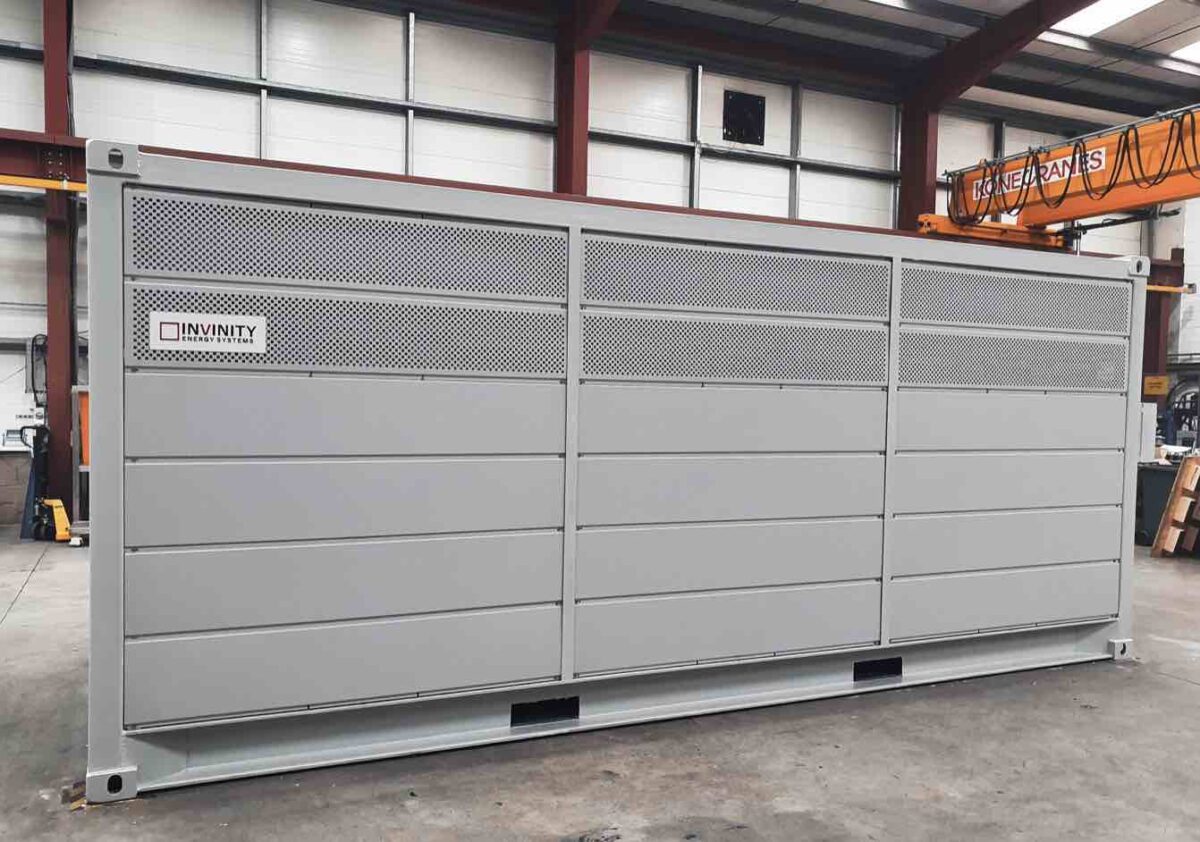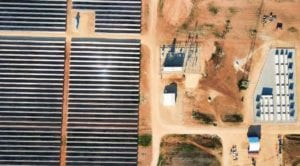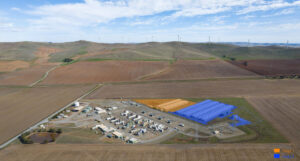Western Australian power company Horizon Power is testing a vanadium flow battery (VFB) to experiment with long duration energy storage in remote locations.
The pilot project at Kununurra – hailed as the first contracted VFB project for an Australian energy utility – will test whether the VFB can solve technical issues around remote storage in harsh — and very hot — locations.
The initial installation is for a 78kW/220kWh battery.
The company is looking to long duration storage options to manage peak demand periods, provide long periods of 100 per cent renewable energy, and reduce the need for grid infrastructure upgrades and expensive fossil fuel back up, says Horizon Power CEO Stephanie Unwin.
“The VFB is specifically designed to deliver large amounts of energy over a long period of time and is temperature resilient – which is critical for our unique regional and remote networks,” Unwin said in a statement.
“This is an exciting trial which will allow us to increase our understanding of the technology in a regional energy system and its ability to provide long periods of 100 per cent renewable energy.”
Horizon Power’s energy network is spread across a distance of 2.3 million square kilometres, which it says is the largest catchment area run by any power provider in the country.
Since 2022, the company has been testing off-grid and standalone power sources in the state, setting up 45 standalone solar panel and battery with back-up diesel generation systems in Esperance alone last year.
The VFB battery will be delivered and installed later in 2023.
In some applications, such as at remote sites where battery storage is used to replace fossil fuel generators or eventually as a replacement for coal and peaking gas power plants, longer duration storage is beginning to make a dent in the dominance of lithium ion batteries.
Currently, lithium ion grid batteries are being built to deliver maximum power for a four to six hour window. Vanadium float batteries can provide up to 12 hours of storage, its proponents say.
Can it stand the heat
Vanadium redox flow batteries should operate within a temperate range of 10°C and 40°C in order to ensure the vanadium electrolyte remains stable, according to a review study published in the International Journal of Heat and Mass Transfer in April.
But using thermal management systems can increase the ambient temperature range these batteries can work in.
Kununurra temperature records show it reached 39.2° in February this year and dipped as low as 6.4° in July 2013, but normally only gets down as low as 15°.
The Invinity battery is rated to operate at a -5° to 45°C ambient temperature range.
VFB makers have been testing global markets for long duration storage for a number of years as a replacement for lithium ion batteries, which are excellent for quick power bursts but can only hold
The battery itself will be made by London-listed Invinity Energy Systems but supplied by local company VSUN Energy which will handle installation and commissioning.
Invinity supplied the system for Australia’s first grid-scale VFB, the Spencer project in South Australia owned by Yadlamalka Energy.
It’s a $22 million, 2 megawatt (MW) /8 megawatt hour VFB that is co-located with a 6 MWp solar farm. Construction has finished the battery is expected to be commissioned this year, according to the company.
VSUN is a venture started and owned by miner Australian Vanadium, which hopes to use vanadium sourced from domestic mines to make electrolyte for VFBs.
The Horizon Power deal will be its third, following sales to the WA water provider Water Corporation, miner IGO, and Priest Bros Orchard in Victoria.









